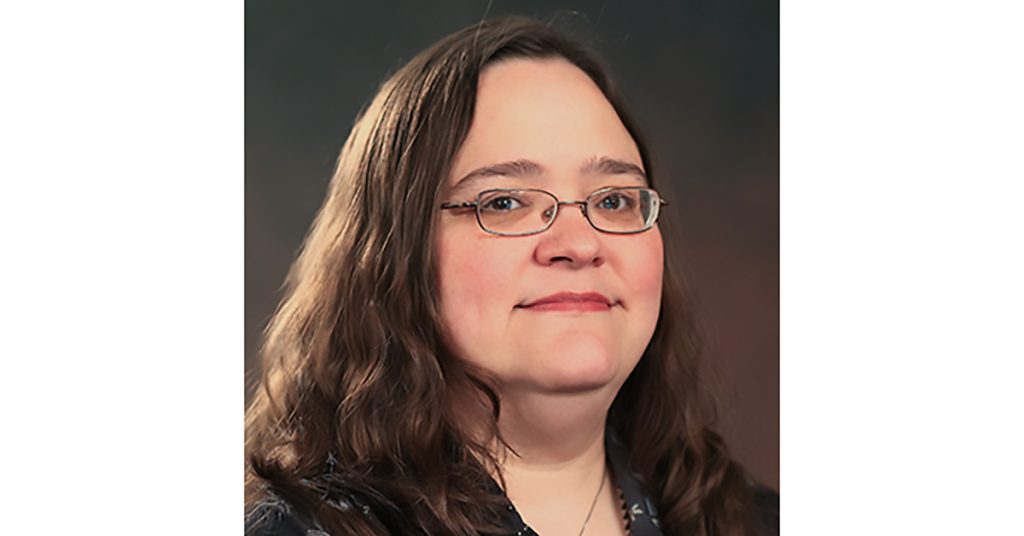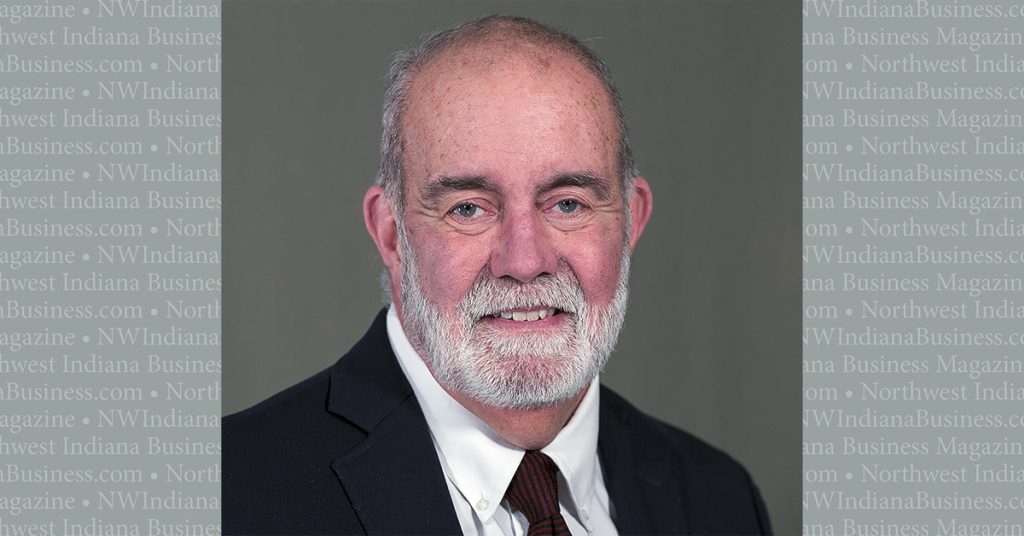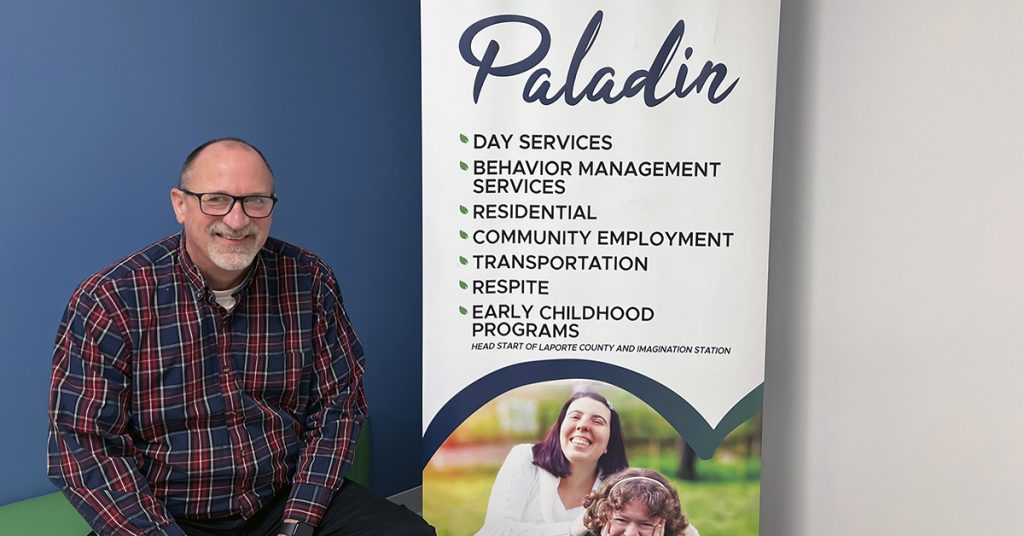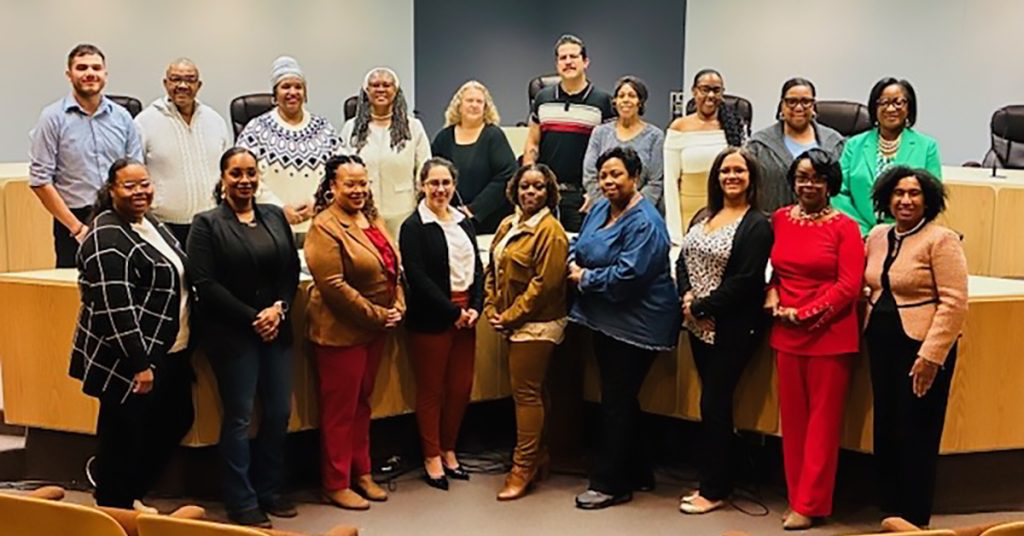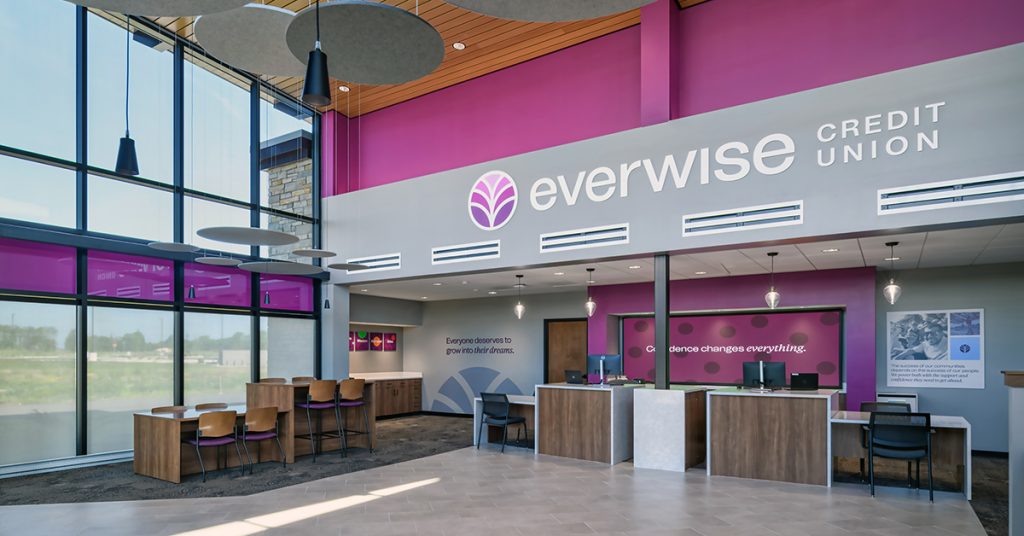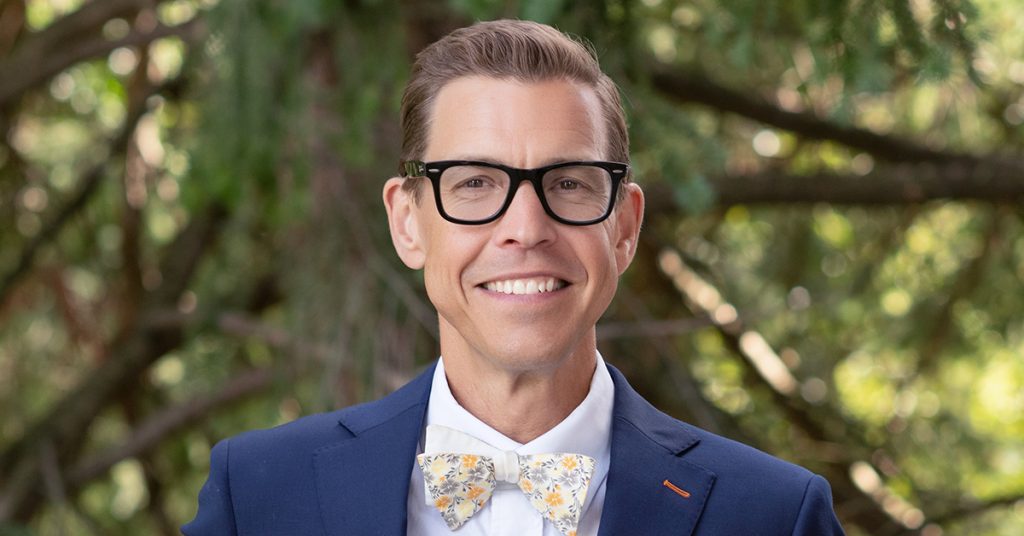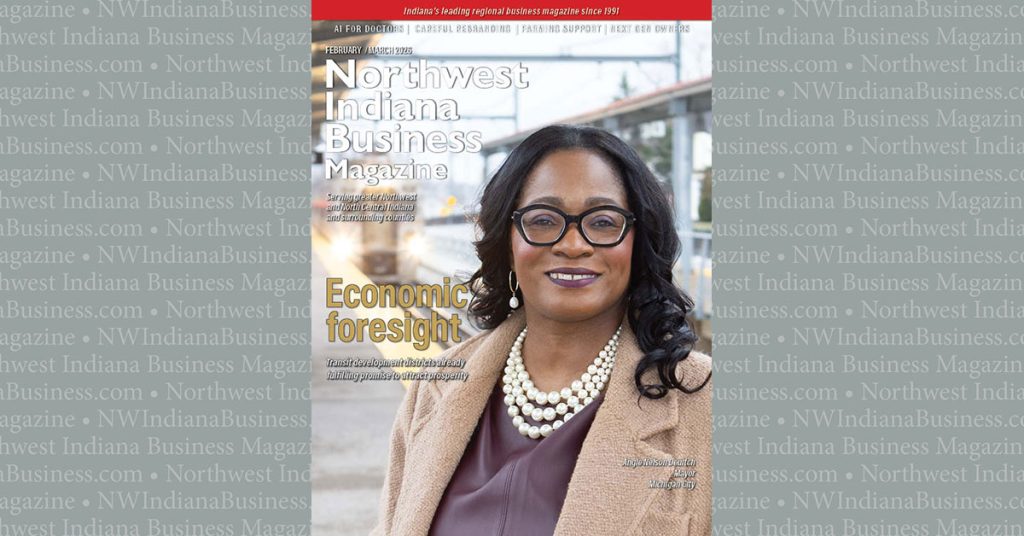
Region’s board members serve with patience, persistence and passion
The crowning moment of John Freyek’s work on Opportunity Enterprises’ board of directors didn’t come easy. But persistence paid off with the grand opening of a respite center in Valparaiso for intellectually disabled children the nonprofit serves.
“It took years to raise $8 million and build the Markiewicz Center to give their parents and the children a break to do fun stuff in a beautiful and safe environment,” he said. “When we finally opened, some staff — angels (who) do incredibly important work — came up to me to thank all of us. Some cried.
“This is why I work on nonprofit boards of directors. It’s good for the soul.”
Indiana is home to tens of thousands of nonprofits that employ 10% of all paid workers and generate $78.1 billion in annual revenue, said Maddison Miller, vice president of external relations at the Indiana Philanthropy Alliance based in Indianapolis.
That number includes 13,000 nonprofits in Lake, Porter, La Porte, St. Joseph and Elkhart counties, according to STATS Indiana. They distribute grants and scholarships and offer religious and spiritual development, education, science and technical research, arts, crafts and humanities.
All of these nonprofits must have a board of directors, according to state code. Many Region leaders are happy to take that call to serve.
Freyek, who is Horizon Bank’s market president in Lake County, is one of them.
“I like to say I do banking so I can do the important stuff,” he said. “My parents taught us that when you reach a certain level in life, it’s incumbent on you to give back.”
Board benefits
Chelsea Whittington, a veteran public relations consultant, said she has worked on many nonprofit boards.
“My first job out of college was at the Boys & Girls Club of Gary,” she said. That experience led her to give back later.
The Legacy Foundation, a broad-based philanthropy managing $80 million in assets, benefiting many Northwest Indiana nonprofits, recently recruited her to its board.
“When I received the call, I was floored,” Whittington said. “I know the high profile of this organization that doles out millions of dollars to the community and organizations I already support.”
She said the opportunity has led to other connections.
“I got so many phone calls and emails from well-wishers, and I’ve met some amazing people,” Whittington said. “You don’t get to hang out and lunch with a bank president every day and network.”
Christina Wagner, associate vice president and marketing coordinator for Peoples Bank, has served on the Urban League of Northwest Indiana’s board for about two years.
Her employer helped her fulfill her desire for community service and connected her with the nonprofit that she has long admired. The Urban League provides education, financial stability and health care to underserved communities.
“As long as I can remember, I’ve always looked for ways to be part of something bigger, something I could do that would make the world a better place for my family, friends, and neighbors to live and grow,” Wagner said.
She said the Urban League’s diverse and engaged 20-member board “allows us to better understand and respond to the needs of those around us.”
“What I love most is knowing I’m making a real, tangible difference in someone’s life,” Wagner said. “If I can help just one person take a step toward their goals — or even simply make them smile — I feel genuinely fulfilled.”
Board decisions
Finding new volunteers isn’t always as easy as it sounds.
“Finding committed board members is a challenge every nonprofit faces,” said Kelly Anoe, president and CEO of the Legacy Foundation.
“We look for people who are able to give us their time, talent and can contribute and volunteer. Our board emphasizes looking for community connectors, people who can offer more technical expertise in investments and legal matters.”
Freyek said his calling came 25 years ago.
“Everybody has someone who puts you on a path, and I was put on mine by a former boss,” he said.
That boss told him to go to the Valparaiso Chamber of Commerce that night to be a member of the small business committee.
“I said, ‘But I work in Hammond!’ Well, I did join that committee, which had me co-hosting ‘AM Valpo,’ a morning business networking program,” Freyek said.
He said that first opportunity led to stints on other nonprofit boards providing care for seniors, people with disabilities and encouraging entrepreneurs to start businesses locally.
He currently is chairman of the Legacy Foundation board.
“The responsibilities of a board member are generally the same no matter where you go,” he said. “You hire the CEO and make sure they are working in line with the strategic plan the board of directors have laid out.
“There are any number of committees that may go into board work that provides proper oversight.”
He said, as a banker, he always gets put on the finance committee.
“The committee work is constant, but the work I’ve done has given back to me tenfold,” Freyek said.
He also likes to be the person who puts others on a path.
“(Serving on boards) has made such a positive impact in my life that it’s a requirement for my staff they all be on at least one nonprofit board,” Freyek said. “From a business perspective, it provides credibility in the marketplace.”
Anoe said anyone fired up to be a nonprofit board member should sit down with the organization and “have a really candid conversation about their expectations.”
“Have a good understanding of the organization’s mission. Make sure it’s a good fit for you and them. If it is, it can be a really fulfilling experience both personally and professionally,” Anoe said.
Whittington has some tips for being the ideal board member.
“Don’t just attend board meetings,” she said. “Find other ways to volunteer your time and talent.
“Read materials shared with you thoroughly. You never know when you will be asked to weigh in on something or represent the organization while in the community.
“And most important, donate regularly and cheerfully!” Whittington urged.
Varied interests
Whittington said she’s proof that Northwest Indiana nonprofits represent the diversity of an ethnically variegated Region.
“There is under representation in terms of African Americans and Black women,” she said. “I gladly stepped into that role to ensure our voices are heard.
“When they talk about projects in Gary, the rest of the board turns around and looks at me to know what I think. I love that.”
Jay Buckmaster, president and CEO of Crossroads YMCA, which operates clubs across Lake County, said members of his board of directors represent a cross section of its service area and generational timeline.
“We have young volunteers who are in the early parts of their careers, and board members who are retired and been with the Y for many years,” he said.
Anoe said nonprofits are looking for board members willing to preserve a nonprofit’s mission.
“Their greatest responsibilities are fiduciary, making sure all the governance documents are in order,” she said. “They should be involved in strategic planning.”
But managing staff is not one of them.
“Allow the CEO to manage the rest of the organization,” Anoe said.
Whittington said that three decades of nonprofit work have taught her that some things never change.
During a Legacy Foundation board meeting, she was reintroduced to Valparaiso’s The Caring Place, an emergency shelter for domestic violence victims. She first encountered the nonprofit in the 1990s through the Lake Area United Way.
“What a full circle moment for me,” she said. “It made me feel good to see they were still in business, (but) dealing with the same issues of not enough funding to deal with homelessness and domestic violence on the rise.
“How do we find the money to ensure they won’t go out of business? That is what we as board members are constantly wrestling with.”
Government cuts
Those demands are likely to grow as nonprofits have to make do with fewer federal and state government subsidies.
“Some (nonprofits) already have experienced cuts to funding after the state of Indiana approved their budget,” Anoe said. “When the federal government did their efficiency audits, some contracts were immediately cut. We saw an immediate impact on organizations’ food pantries, senior and child care, and health care was hit right away.”
Wagner said the Urban League is feeling the effects.
“Sponsorships and donations are starting to decline, and there’s uncertainty around whether funding will come through for programs like VITA,” she said. “We processed more than 700 tax returns last year with the help of around 15 volunteer preparers.”
The IRS’s Volunteer Income Tax Assistance has helped qualified people for more than 50 years.
But funding uncertainty doesn’t change the mission of these organizations.
“Even so, we remain committed to our core areas of service — education, financial literacy, health and wellness, and entrepreneurship,” said Miller of the Indiana Philanthropy Alliance. “It can be challenging at times, but in a good way. It fills my heart with love, and that, alone, is enough to keep me here”
She said nonprofits in Indiana traditionally receive about 30 percent of their revenues in government funding.
“Counties such as Marion, Lake, and St. Joseph, which have historically received more public funding, may be particularly affected,” she said.
Families will be impacted too, Miller said.
“As more parents leave the workforce due to childcare challenges, families are at greater risk of food insecurity and housing instability, which puts additional strain on nonprofits, food banks, and social service providers already facing public funding cuts,” she said.
There is already a waitlist in the thousands for Indiana’s state government-funded voucher program, which helps low-income working families afford some form of childcare. If funding is frozen and fails to keep up with inflation, childcare-related work absenteeism, which already costs $3 billion annually, may grow.
“We have so many families that receive that funding,” said Sharon Johnson, CEO of the Valparaiso YMCA said, “to be able to afford childcare in order to go to work and feed their families and put a roof over their head.”
She hopes to address this in the YMCA’s future fundraising.
Some organizations are using reserves to maintain services through 2025 but have indicated they may not be able to continue at current levels in 2026 without new funding.
“The financial impact is still unfolding, but already-strained human service nonprofits are bracing for reduced capacity,” Miller said.
Freyek said some nonprofits may have to merge with others or fold. To negate some of those effects, the Legacy Foundation has allocated $600,000 over two years to support organizations serving Lake County who have lost funding because of state or federal funding cuts.
By late August, the foundation already had awarded four Lake County resilience grants totaling $137,809.
Between 2024 and 2025, the organization raised $9.3 million for Lake County through donations from the public and a matching grant from Lilly Endowment Inc. — $5.87 million of those funds will support community grants, and $3.3 million will fund community projects and programs.
“Our Lake County donors came roaring out to help with that, and I have no reason to believe people are less philanthropic now,” Freyek said. •
Read more stories from the current issue of Northwest Indiana Business Magazine.

